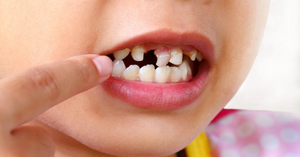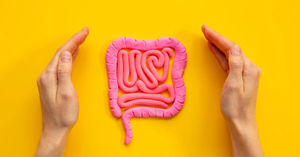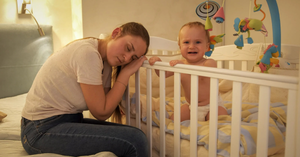What is Postpartum Depression?
There is often a feeling of nervousness or anxiousness associated with new parenthood and this is perfectly normal. Sometimes, a new mother feels an overwhelming sense of sadness, frustration, tiredness and overwhelming feelings which do not get better over time. When these feelings continue over 2 weeks, it is termed as postpartum depression.
What causes postpartum depression?
Postpartum depression is caused by a mix of several factors which include hormonal changes in the body during and after pregnancy along with sudden lifestyle changes for taking care of the newborn such as loss of sleep and increasing stress.
What are the signs and symptoms of postpartum depression?
Postpartum depression has a wide range of symptoms and these can vary from woman to woman. Some common symptoms include-
- A constant sad or hopeless feeling
- Feeling overwhelmed
- Constantly feeling worried
- Always putting blame on yourself
- Excessive crying without a reason
- Feeling moody all the time
- Unprovoked anger
- Sleep disturbances which can be either sleeping too much or too little
- Changes in appetite which can be eating too much or too little
- Having trouble in concentration
- Does not feel attached to the baby
Who is at risk for postpartum depression?
Any woman can develop postpartum depression after the delivery of the baby. It is a common mood disorder in pregnancy. Regardless, there are a few factors which can make a woman more prone to developing Postpartum Depression. These include-
- A woman who has had any kind of depression previously is at an increased risk.
- Any woman who had suffered from postpartum depression previously
- A woman who has a family history of depression
- Presence of serious stress during the pregnancy
- Presence of medical problems during the pregnancy or after birth
- The lack of a proper support system at home.
How is postpartum depression treated?
The treatment for postpartum depression focuses on improving the mental well being of the mother. When therapeutic interventions do not have the desired effect, medications can also be considered.
- The mother can join counselling. It focuses on mental health and feelings of the mother.
- It is recommended to improve the self-care regime. Pregnancy and childbirth is the time when everybody focuses on the baby and the mother may herself not take good care of herself. The mother should get enough sleep, eat well, do light exercises and take time to relax.
- The mother can get support by joining a group or talking with other people who have gone through or are going through postpartum depression as well.
- Sometimes, medicines can be prescribed. These are medicines which can be safely taken while breastfeeding.








Be the first one to comment on this story.